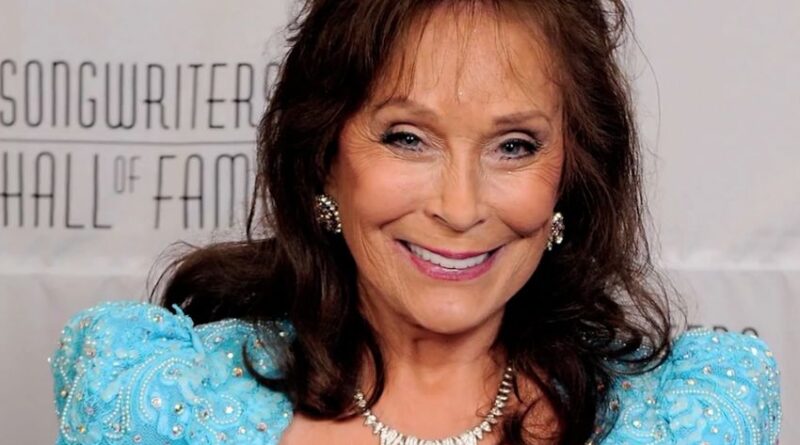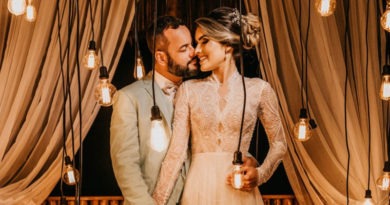Remembering The Coal Miner’s Daughter
Loretta Lynn was much more than a country singer. She was the voice of women everywhere. She paved the way for women in country music that came after her, using her voice to bring attention to women’s rights in a time where it was a taboo topic. Loretta openly sang about women’s sexuality and advocated for abortion rights. Loretta’s song “The Pill” brazenly talks about birth control and how much easier it made the lives of married women everywhere who were tired of having children. In a male-dominated industry, she made her voice known.
Loretta was the pioneer, which makes her death even more somber. We didn’t lose just another name on the country music charts. We lost the icon that inspired women everywhere to pursue whatever they wanted to do and be whoever they wanted to be.
She was born Loretta Webb in the small Kentucky mining town in 1932, one of eight children. Her family had little money, but she had fond memories of home, especially her father. “Even though he died before I got started singing, I had almost 14 years of Daddy giving me love and security,” Lynn wrote. “I think Daddy’s the main reason I always had respect for myself when times got rough—I knew my Daddy loved me.”
She spoke fondly of the people she grew up with in her autobiography. “Holler people are just different than anybody else. They live up high in the hills, one day at a time,” she wrote. “There probably are a few who don’t know who the president is, and there have been times when they were better off that way.”
Many artists try to escape their roots, but Lynn forever embraced hers. “They’re really beautiful people in their own way,” she said about the people of Butcher Hollow. “Everybody else is worrying about the energy crisis and talking about getting back to the simple things. My people are already there. If we run out of energy, my relatives know how to patch their houses and grow their gardens, so they’re gonna have the last laugh on everybody.”
Growing up, she sang in church and at home, but no one, not even Lynn herself, could have imagined the life she’d eventually live. She married the love of her life, Oliver “Doolittle” Lynn, whom she called “Doo,” when she was 15 and gave birth to their first child the same year. “When I got married, I didn’t even know what pregnant meant,” Lynn told NPR in 2010. She would learn fast, having three more children in her first four years of marriage. They’d later add a set of twins to the family.
After her husband lost his job in the mines, the couple moved 3,000 miles from home, to Washington state and a logging town called Custer. Music was the furthest thing from Lynn’s mind. “I took care of a farmhouse, cleaned and cooked for 36 ranch hands before I started singing,” she said. “Life was hard.”
Lynn pursued a music career at the insistence of her husband. He’d heard her humming tunes that soothed their babies and told his bride she sounded better than many of the women singing country songs on the radio. He bought her a $17 Harmony guitar and set up her first gig at a local tavern.
Her husband also pushed Lynn to write her own songs. When asked how she came up with her first hit song, 1960’s “I’m a Honky Tonk Girl,” she had a simple answer. “I listened to a bunch of people, you know, their songs and stuff, and I figured, If they can write, I can too. So I said, Hey, I’m going to tell a story. And that’s what I did.”
Lynn made her mark on Nashville precisely because she had stories to tell. And she told them for the next 50 years in catchy, mercurial three-minute morality plays that resonated with fans across America, so many of whom saw their struggles and joys—their lives—in her songs.
The success of “Honky Tonk Girl” landed Lynn on the greatest stage in country music, Nashville’s Grand Ole Opry, and a record deal with Decca. Not long after, Lynn would become friends with another rising star on the Nashville scene, Patsy Cline. “She taught me a lot,” Lynn said. “She told me to get out of the jeans. I would wear them until we get to the radio station. Then I’d get in the backseat and put on my dress. Then I’d take the dress off and go back into my jeans and wait till the next radio station, and then I’d go back into my dress again.
Cline also taught her to stand up to her husband, which she’d do for the rest of their marriage. “After I met Patsy, life got better because I fought back,” Lynn told Nashville Scene. “Before that, I just took it. I had to. I was 3,000 miles from my mom and dad and had four little kids. There wasn’t nothin’ I could do. Later on, I started speakin’ my mind when things weren’t right.”
Some of her hit songs challenged conventional narratives of the genre. But Lynn wasn’t writing to blaze trails: She was writing about what she was living. Lynn’s sixth chart-topping single, “Rated ‘X,'” tackled the stigma that divorced women faced leaving their husbands. As always, Lynn pulled things off with a mix of mountain wit and candor.
A big part of Lynn’s success was built around her commitment to constant touring, a byproduct of her Appalachian work ethic. “If you’re gonna record, you gotta be out there with the people who buy your records,” she would say. She regularly played 125 plus shows a year, traveling 150,000 miles a year in her custom tour bus.
Lynn would experience even greater national exposure when her autobiography, Coal Miner’s Daughter, was turned into a movie with Sissy Spacek playing Lynn and Tommy Lee Jones as Boo. Spacek’s performance won her the best actress Oscar in 1981.
Her life changed dramatically when her husband of 50 years died in 1996. And not for the better, according to Lynn. “I miss him so much. He always kept me moving, and he’d always tell me how good I was. And that always helped a lot,” she said. “If it hadn’t been for him, I wouldn’t have been singing, period, because he thought I could sing. And he put me to work.”
On the Sunday before she died, Lynn shared a quote from the Bible—John 3:20-12—on Facebook. “Everyone who does evil hates the light, and will not come into the light for fear that their deeds will be exposed. But whoever lives by the truth comes into the light, so that it may be seen plainly that what they have done has been done in the sight of God.” It would be the last post she’d ever write.
Lynn celebrated her 90th birthday in April 2022 and received well-wishes from fellow musicians worldwide. “To us, you’re timeless and ageless and always will be,” said country music star Tim McGraw and his wife, Faith Hill.
Borrowed Content Courtesy of theutcecho.com
By Kate Hixon
And
Newsweek
BY LEE HABEEB




